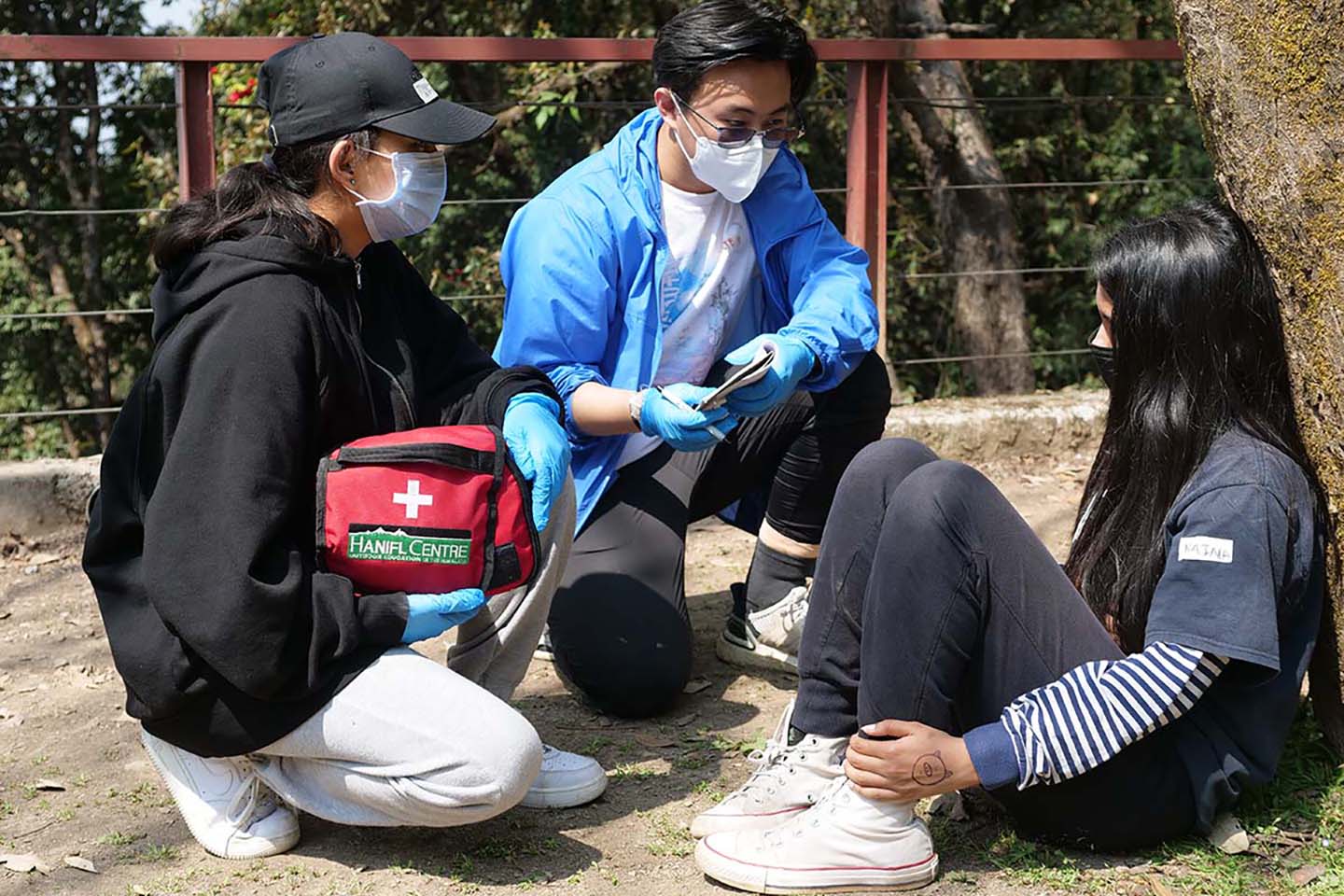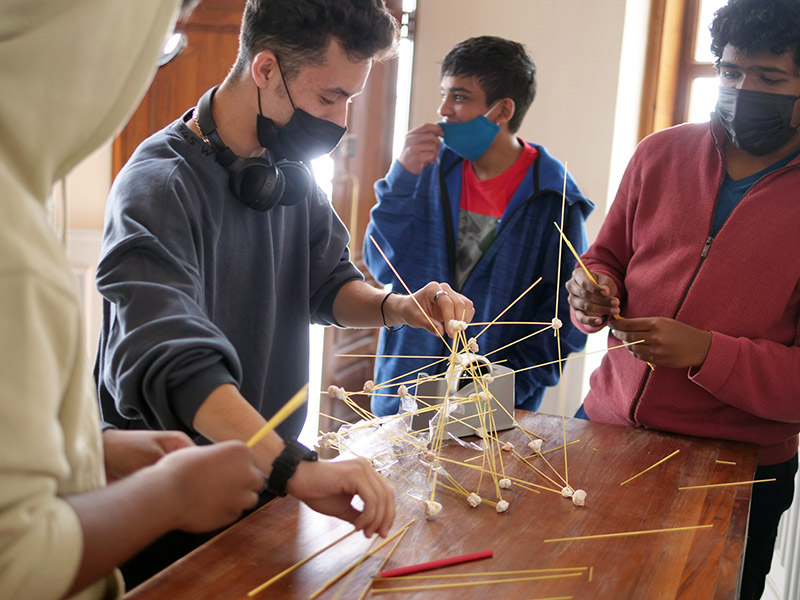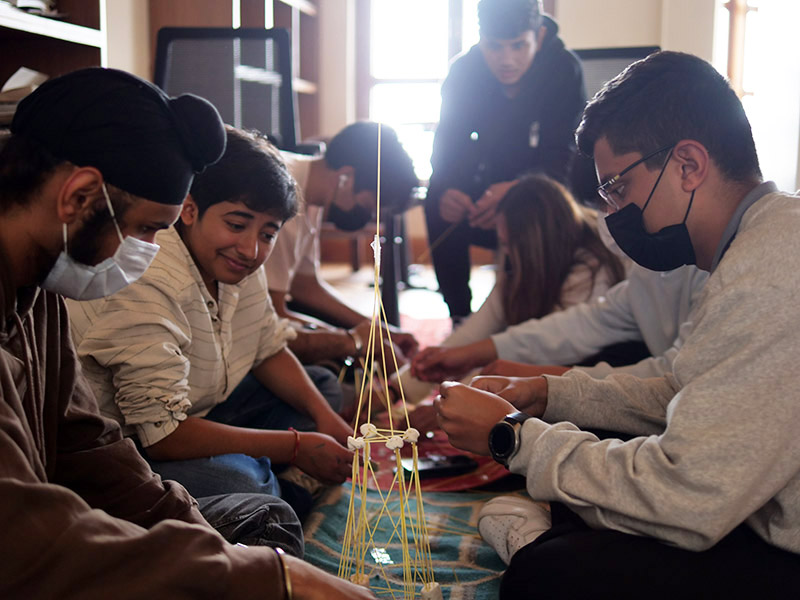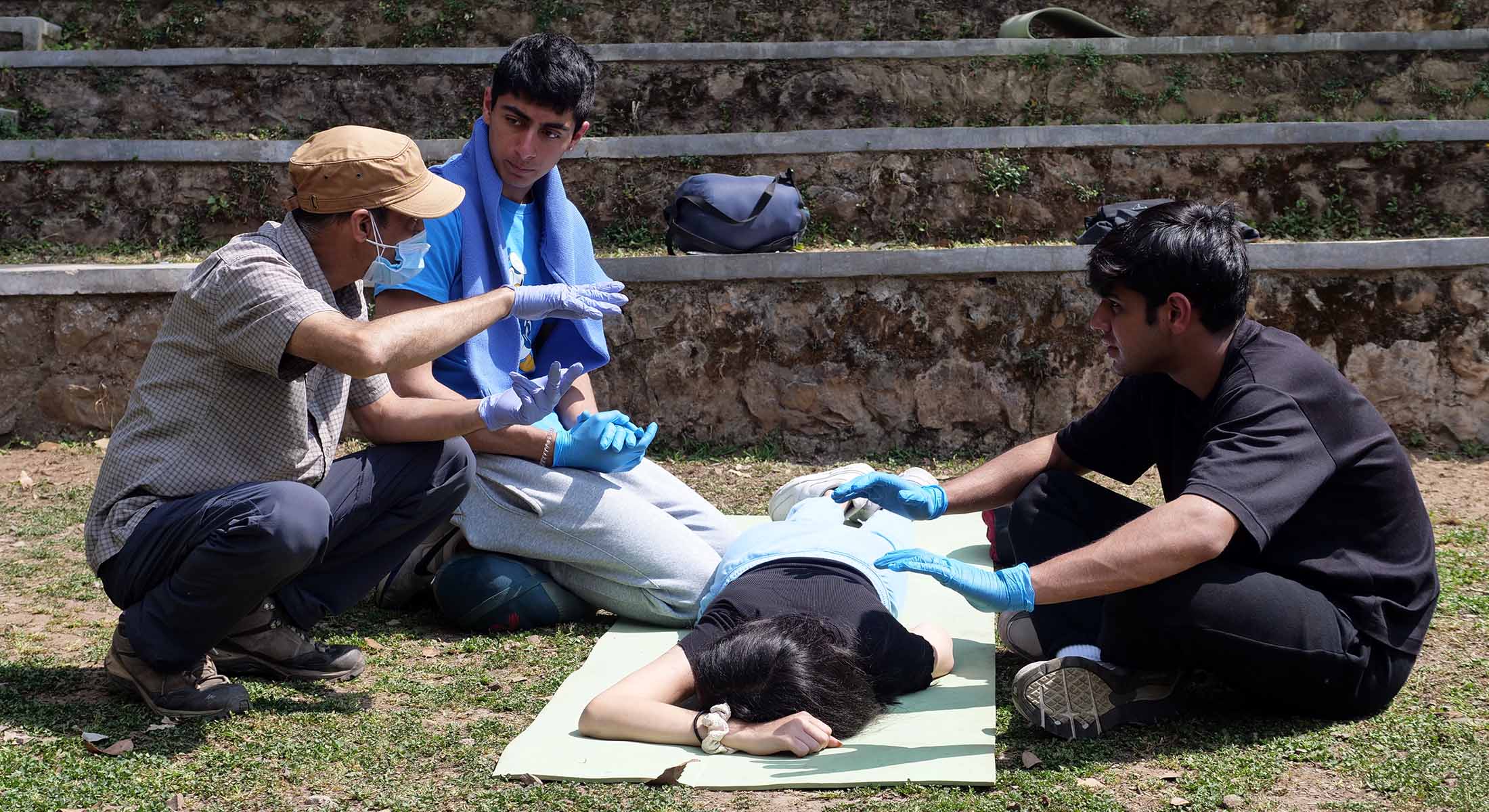
21 Mar Creativity, Activity, Service as part of a holistic approach to education
In more conventional times, last week would have been our Spring Break, marking the mid-point in the semester and a brief pause before the build-up to the final flourish of the academic year begins in earnest. This year we have set the break aside to maximise the opportunity of having all our students here in person, especially for our Middle Years cohort, many of whom took their first steps around the school corridors and classrooms on Wednesday.
 This reconfiguration of the school calendar has enabled us to give the Class of 2023 a week away from their timetabled classes and focus their energies on more holistic pursuits. In a special activity week, Grade 11 spent half their time learning about the IB’s Creativity, Activity, Service (CAS) programme, and the rest learning Wilderness First Aid with the Hanifl Centre.
This reconfiguration of the school calendar has enabled us to give the Class of 2023 a week away from their timetabled classes and focus their energies on more holistic pursuits. In a special activity week, Grade 11 spent half their time learning about the IB’s Creativity, Activity, Service (CAS) programme, and the rest learning Wilderness First Aid with the Hanifl Centre.
The International Baccalaureate curriculum and the CAS framework are still relatively new to Woodstock. Our Grade 11 students who participated in this week’s course will be only the third to graduate with the IB Diploma and Woodstock School Diploma. The elements contained within however have been part and parcel of our educational experience for many decades. From arts, music and drama, through sports and outdoor pursuits, to community service, these areas have always gone hand-in-hand with students’ academic journey.
The first aid skills Grade 11 learnt this week may lay dormant until they are required; you might think of this as storing skills to be utilized at just the right time. It definitely fits our mission at Woodstock of preparing students to lead effectively in any situation which they confront in life.
What really stands out about Woodstock School’s educational approach is that we put these pursuits on an equal footing with students’ academic progress. This is not to say that academic discovery is not important to us, far from it, but academics are a key goal for every school. Where we hope to really add value is in developing the whole child, enabling them to grow in terms of knowledge and reasoning, but also as individuals with a thirst for learning, equipped with the skills to enable them to thrive in leadership and life. Our aim is that each child can explore and discover their passions in life, inside and outside the classroom, and be able to share and articulate these with others.
 Nothing has changed about these long-cherished goals and values, which continue to be a key part of our educational philosophy. What CAS does provide us with however, is a framework which encompasses all these aspects, giving the structure and objectives for students to work towards, and ultimately a standard which is recognised by universities around the world.
Nothing has changed about these long-cherished goals and values, which continue to be a key part of our educational philosophy. What CAS does provide us with however, is a framework which encompasses all these aspects, giving the structure and objectives for students to work towards, and ultimately a standard which is recognised by universities around the world.
The Wilderness First Aid course students participated in this week is a great example of service, or rather preparing themselves to serve when the time comes. With many of our community development activities, whether they are working with local farmers to learn organic methods, or with collaborative education projects with local school children, there is a clear pathway towards their goals, and it is easy to see progress being made over time. The Wilderness First Aid training is different. The skills Grade 11 learnt this week may lay dormant until they are required; you might think of this as storing skills to be utilized at just the right time. It definitely fits our mission at Woodstock of preparing students to lead effectively in any situation which they confront in life.
No one can tell if or when they will need to draw upon their experience, but should the need arise, they will be ready. When the time of need comes, they will be able to comfort, help and serve whoever is in need. It may be dealing with a blister or scrape, but it might be responding to a heart attack or hyperthermia, and ultimately it could mean saving a life. We should all be very proud of our Grade 11 students, and grateful for their willingness to serve, now and into the future.
Dr Craig Cook, Principal
Photos: Pictured top – Grade 11 students at the Hanifl Centre participating in 20 hours of intensive Wilderness First Aid training. The course is a perfect introduction to wilderness medicine, and provides the basic skills to handle an emergency, whether in the great outdoors or closer to home. Most people who undertake the course are either outdoor enthusiasts or professionals who spend time away from immediate medical facilities. Students learn systems to assess patients, how to treat common injuries and illnesses, and when patients need to be evacuated. The training includes CPR training and how to use an EpiPen in the event of a severe allergic reaction.
Pictured bottom – in one of a series of CAS workshops Grade 11 participated in last week, students were challenged to work in groups to build a tower using just spaghetti, marshmallows, sticky tape and their ingenuity. The towers were judged on three criteria – height, aesthetics and last but not least, the most creative use of marshmallows. As well as being lots of fun, the task helped students to understand the importance of collaboration, problem solving and decision making. It also gave them an important lesson in terms of listening to the rules and gaining clarity on unclear guidelines before rather than after your project is completed – all skills which will set them in good stead as they develop their personal CAS projects over the next academic year.






No Comments